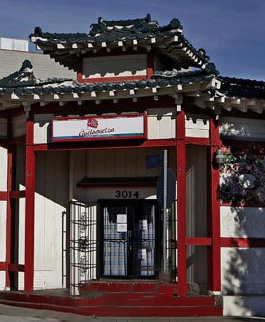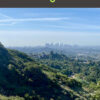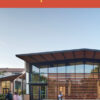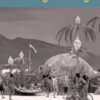
—The city?
—No, the set.
Welcome to my city, where the people, the buildings, even the sun are willing and able to accommodate the camera. We live in a city dangerously comfortable with constructing realities that “hold” only long enough to trick the eye. We starve ourselves so the lens won’t make us fat, not noticing that in real walking-life we look emaciated. But who cares about the here and now when the camera teases and dangles the key to forever… to immortality?
And so our industry of dreams goes on to colonize the psyches and expectations of people on the receiving end of our images, too far away to hear the deafening sounds of the swing crews striking down the West Wing of the White House—the set, that is.
“Heretodaygonetomorrow” is our mantra. Impermanence lends all who arrive in Tinsel Town permission to build and to destroy, as long as we promise to put up the “next big thing.” In a town that fears the old and used, we applaud and admire those—the plastic surgeons, art directors, architects, advertisers, designers, lawyers even—who can recreate a reality down to its minute, desirable detail, while conveniently leaving out those deemed not so attractive. Experiencing the original, the unaltered rawness of the real, is rendered dispensable: too imperfect for the camera and posterity.
But we, in our quest to “matter,” race against erasure. With little awareness or respect for what has come before, we rush to tag the town with the bold “I was here” that we hope will outlive the next coat of paint. Few make it, cross over into immortality with that one film, book, or scandal that rings the town’s overnight success bell. Entering the Winners-and-We- Know-It Club, they move to the hills, out of reach and out of touch.
And the others, left outside, do we keep trying? Do we desist, or do we go on to make Los Angeles our home, a place to raise our children and grow old? The faint calling of “the flats” grows louder.
Our freeways—that cruel joke Detroit played on us—have rendered Hell-A sprawl, arms and legs that lead too many places and none. But the surface streets, leading someplace, whisper, begging to be discovered. We are their hope. As we debate “should I stay or should I go?” we jump in the car—our weapon of choice—and get off the roads most traveled: the 5, the 10, the 405. Willing to not know where we’re going, we take time to peep behind the walls that line the boulevards and avenues, suddenly discovering where we’ve stood but never really been.
There before me is a monument to a misunderstood L.A.: On the outside, a nostalgic recreation of someone’s Koreatown pagoda, once majestic, now faded, it hardly calls attention to itself. But take the time to go inside and let the color walls blast you awake: yellow, magenta, blue. “La Guelaguetza,” pagoda-turned-Oaxacan-Mexican restaurant, is at home with its fused destiny. And so are we: this is our Los Angeles. The city.
Yareli Arizmendi is a Mexican-born actress, writer, and producer who has lived in California since 1983. She played Rosaura in the film Like Water for Chocolate and wrote, with her husband, Sergio Arau, and Sergio Guerrero, the 2001 feature mockumentary, A Day Without a Mexican, in which she played the lead role of Lila Rodriguez.
Originally published 2nd quarter 2006 in arcCA 06.2, “L.A.” Re-released in arcCA DIGESTSeason 10, “Other Beauty.”





